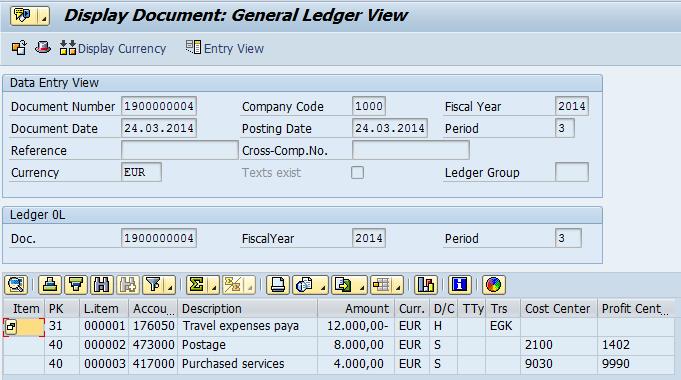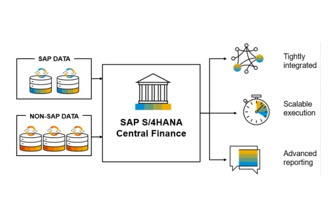Show off Your SAP Skills: Take an SAP Assessment
by Michael Management
 Are you a competitive and ambitious professional looking for ways to constantly test your knowledge of SAP? The chances are strong that you are, especially if you’ve already earned an SAP certification.
Are you a competitive and ambitious professional looking for ways to constantly test your knowledge of SAP? The chances are strong that you are, especially if you’ve already earned an SAP certification.
But earning your initial certification is one thing. It’s an entirely different concept to continue to learn, improve, and grow, particularly when it comes to advancing your specialty in SAP.
So what can you do? How can you test yourself to understand where you need to direct your energy next so that you can advance your knowledge of SAP?
That is where SAP skill assessments come in. Here’s everything you need to know about them.
Why Take an SAP Assessment?
The main reason to take an SAP assessment is to understand what you know and discover what you don’t know. This is the primary goal of any assessment, even the ones that you start taking in grade school.
Assessments as a concept help test-takers understand the areas of their current excellence and other areas where they may fall short.
Often, test-takers associate pride with doing well on a test and shame with doing poorly. However, this dichotomy isn’t necessarily accurate.
Certainly, you should be proud of yourself for doing well on an assessment.
However, doing poorly on an assessment should also elicit some sense of pride. This is not necessarily a “failure.” Instead, it’s a laundry list of opportunities that you have to continue growing, some of which may overlap or synergize with one another in ways that can help accelerate your career.
Even so, you may not have a strong idea about where your SAP skills fall in either category at this time. If that’s the case for you, then taking an SAP assessment does more than just give you results. It shows you an established baseline of what you know and where you need to grow.
Then, you can take an assessment later to see how much you’ve improved in quantifiable terms.
With this in mind, what does an SAP assessment actually entail?
What Does an SAP Assessment Entail?
Every SAP assessment is different. Even assessments from the same provider may vary to some degree, whether that be subject area, question quantity, or perhaps even pass/fail ratios.
Generally speaking, you can expect SAP assessments to include a theory portion, a practical portion, or both.
The theory portion asks questions that you will have to actively recall in order to answer. This could be in the form of multiple-choice, short answer, or perhaps even essay questions, depending on the provider.
Practical questions may require you to show some level of proficiency in SAP, often within a closed instance that is used exclusively for testing and not a “live” interface.
The theory portion is designed to resemble something similar to a job interview, where you may be answering questions about a specific segment of SAP to ensure you’re proficient enough for a position.
The practical question will resemble more of a “day in the office” with different tasks and instructions that you have to complete in the software itself.
However, it’s important to note that not all assessments include both of these segments. Some may be exclusively based on theory, and others may be exclusively practical. Again, it depends on a number of factors, including the provider itself.
Knowing that you could encounter a number of different scenarios with an SAP assessment, let’s talk about how you can get started.
How Do You Get Started?
Most of the time, you will have to take an SAP assessment directly from a provider. This means going to their website or contacting them directly to set up an assessment time, date, and occasion.
Online, this is relatively simple. The process includes going to a sign-up page, inputting your information, and submitting it to the company. Some companies may have instant turnaround times, in which case you can start your assessment the moment you sign up for the service.
Offline, the process may vary. You may have to call a provider, submit information via mail, or perform other tasks. You could also have to travel to a testing location, depending on the assessment’s requirements.
Regardless of your scenario, it’s a relatively low bar to get started. Longer assessments may have a fee associated with them, and briefer assessments may be free.
Either way, you’ll still get your results fairly quickly.
This leads us to our last question — how can you act on the results you get?
How Do You Act on Your Results?
The crux of acting on your results is accepting the areas where you did well and the areas where you need some work.
It can be hard to look at test results and fully accept your answers. There are few methods of direct feedback that are so blunt and factual that you can’t argue with them.
It’s also easy to make excuses for yourself when you look at test results. This is a common reaction for many in all walks of life, and it can be especially prominent in professional settings where proficiency and skill are prized above other qualities.
This is why it’s so important to accept your results as they’re presented to you. Understand and be proud of where you did well, and take a look at the source material for the areas where you see more incorrect answers.
Then, you can study or enroll in courses that will help you grow in areas you need improvement.
And once you’ve studied, you can take the assessment again to see where you improved.
Start Your SAP Assessment Today
Are you ready to test your skills at SAP?
You’re in luck – we have developed SAP assessments that you can take at a moment’s notice.
These assessments help you accomplish everything we discussed above. With our results, you’ll be able to tell where you do well and where you need to improve.
Plus, you also earn some bragging rights.
by Michael Management
More Blogs by Michael Management

Unlock Financial Precision: The Critical Role of...
Mastering Document Splitting in SAP Central Finance: Essential Ins...

Unlocking Success: The Strategic Imperative of Group...
Why is Group Reporting Critical for SAP Central Finance? Masterin...

Kickstart Your Career: Mastering SAP Inventory...
SAP inventory management is an in-demand skill set from large companie...
Related Blogs

Onboarding for New SAP Users
Hiring is a challenging process. This is especially true for companies...

SAP Online Training Courses: Are They Worth It?
Companies are always looking for employees with keen, sharp, and up-to...

10 tips for better listening at work
How often do you really listen to others at work? Effective listening in all...
.png)

